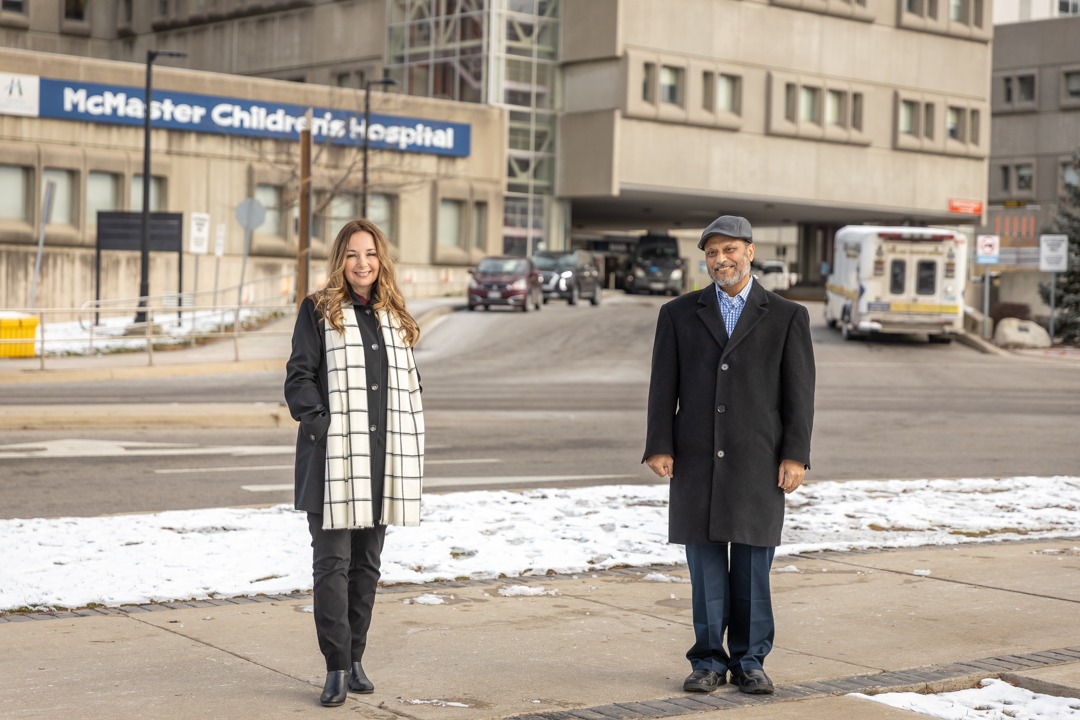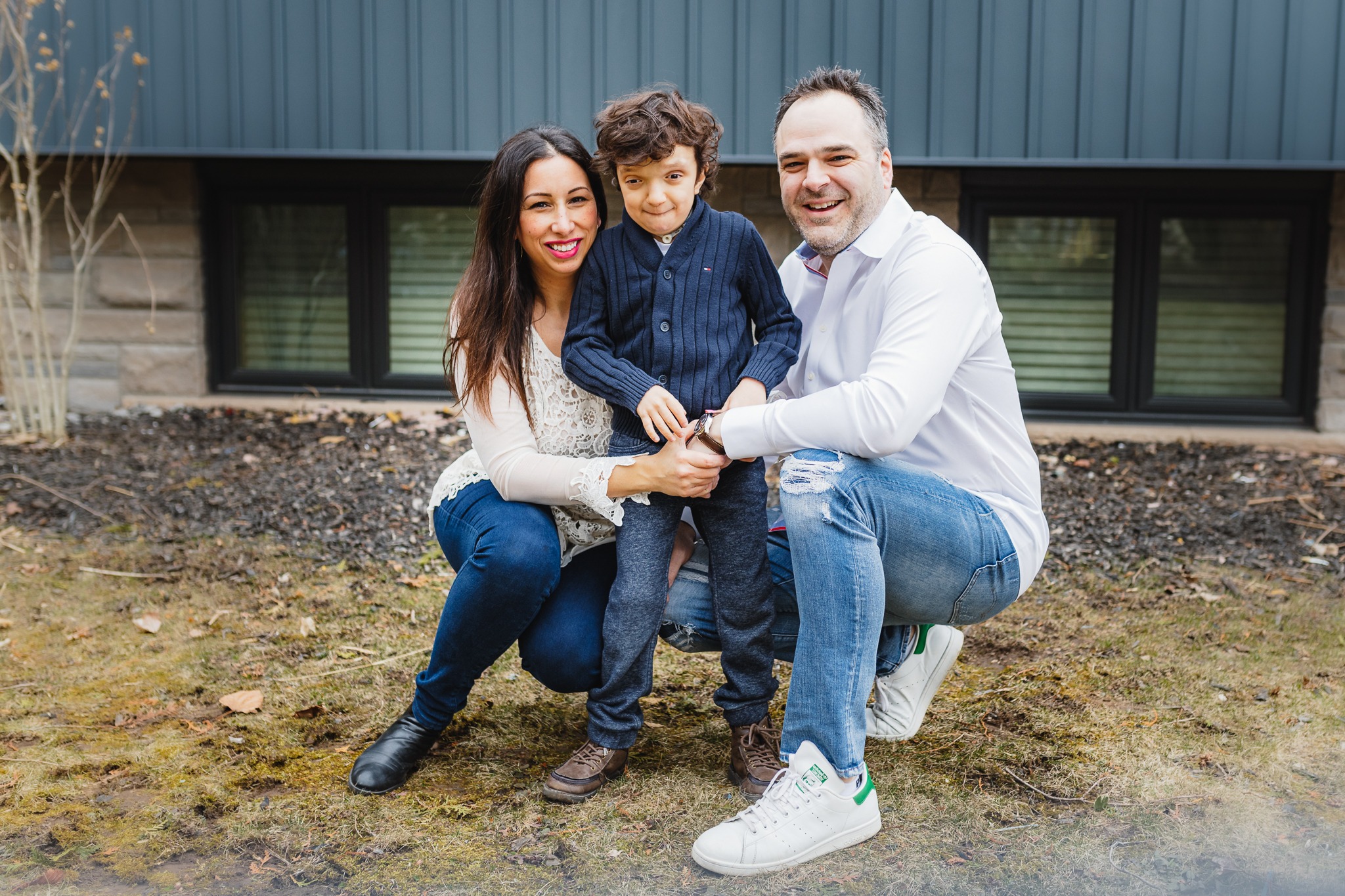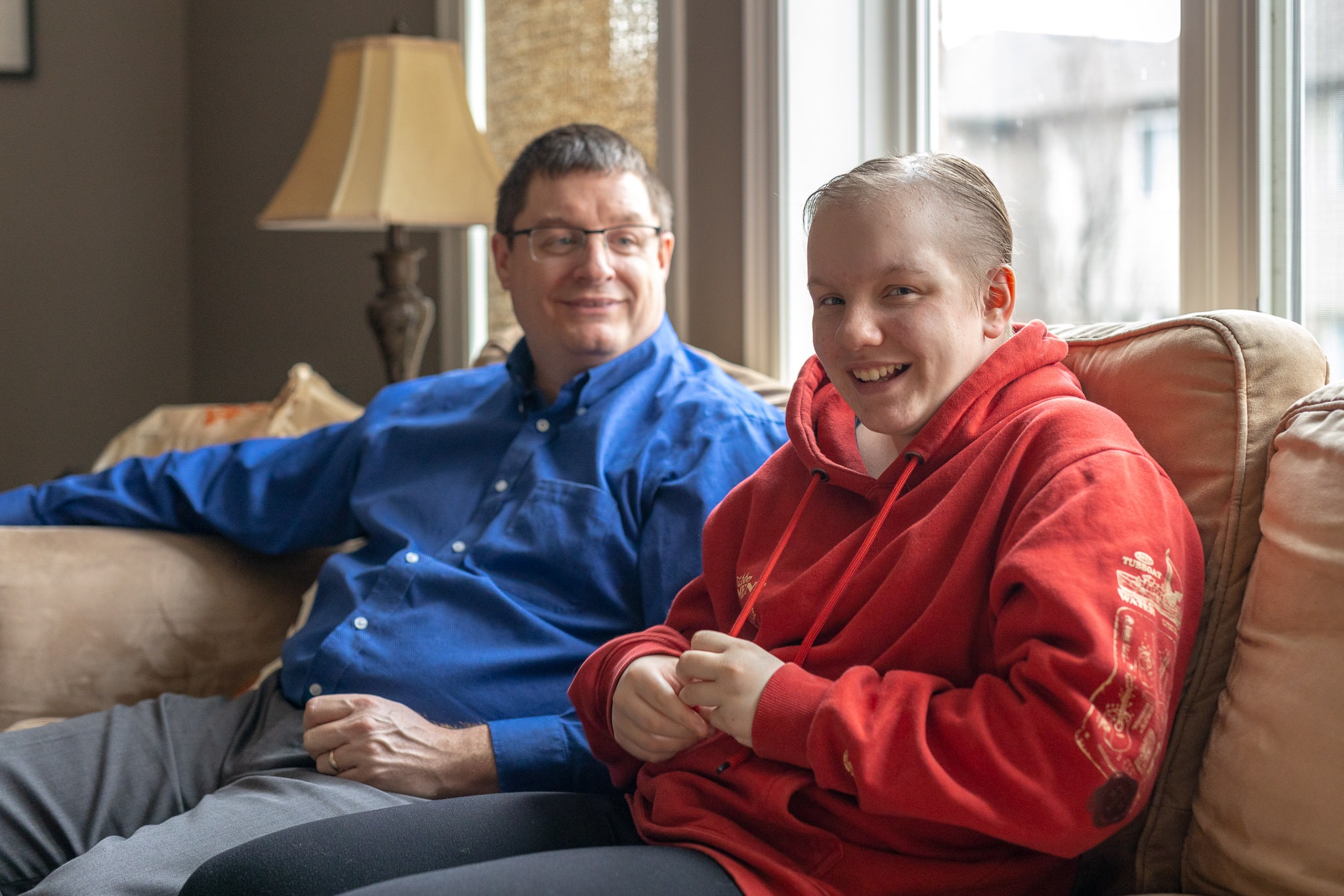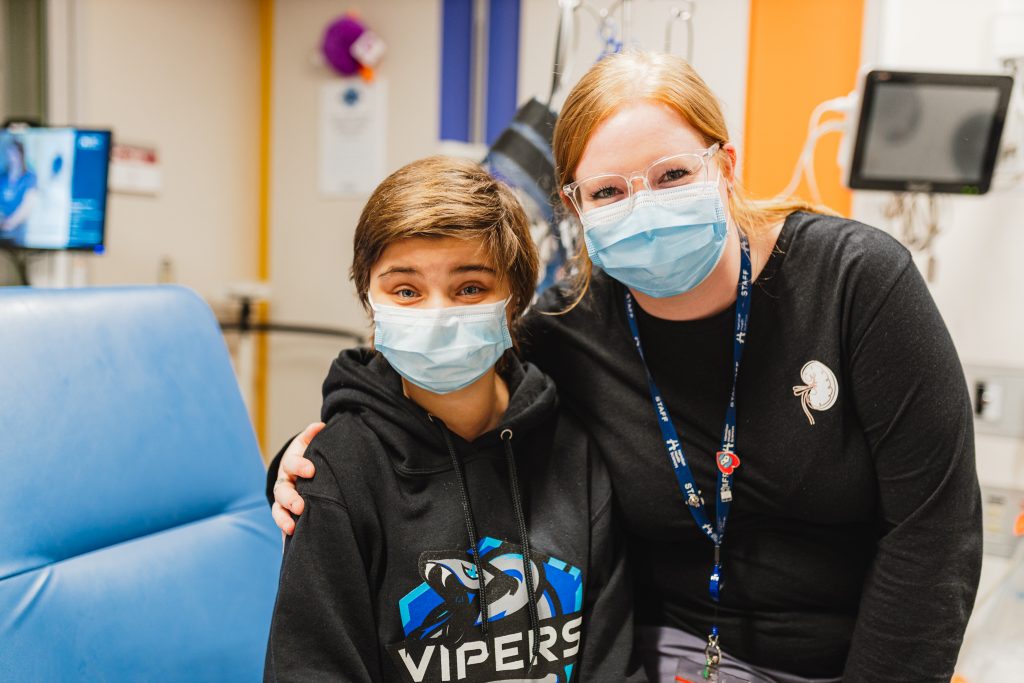
Medication, dialysis and transplant help 14-year-old with kidney disease
Last year, 14-year-old Maggie Gibson was experiencing bad headaches at school. At first, her parents thought the classroom was too loud, but they took her to her doctor at Hamilton Health Sciences’ McMaster Children’s Hospital (MCH) who determined Maggie’s chronic kidney disease was the cause.
Maggie has been on medication for polycystic kidney disease since she was born at MCH – and her mom Samantha knew she would have kidney disease even before she was born.
The headaches and other tests showed Maggie’s kidneys had slowly deteriorated to end-stage kidney disease – and a transplant was needed.
In the meantime, she would need to begin hemodialysis to treat her polycystic kidney disease. The disease causes cysts to develop on the kidneys making them lose their function.
Kidneys play multiple roles
“Kidney function is very important as the kidneys have multiple functions within the body,” says Morgan Beach, a hemodialysis nurse at MCH. “The kidneys produce urine, which helps to remove unwanted substances from the blood. They maintain a stable balance of water volume, electrolytes, and blood pH, and they produce hormones and other chemicals that help maintain red blood cells and blood pressure.”
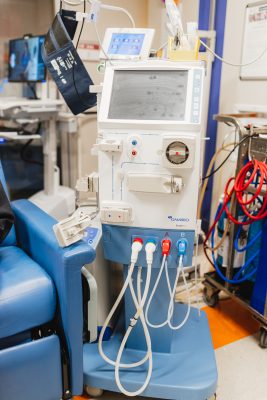
Dialysis machine
When the kidneys are no longer working properly, a dialysis machine will take over and act as a kidney for the patient in order to remove toxins and extra fluid. Hemodialysis is the artificial process of eliminating waste and unwanted water from the blood that can take place every few days, or as often as the patient needs it.
Maggie started hemodialysis in November 2021. She was on dialysis until she was placed on the transplant list in early February 2022. She received her new kidney at SickKids Hospital in Toronto on February 16 where she stayed for a few weeks before returning to MCH for her recovery.
“We knew it was going to happen sooner or later,” says her mom, Samantha. “It was a unique circumstance that it happened so quickly.”
Maggie had been on the list a few times before, but would be removed and re-added depending on if her health levels were adequate for a safe transplant.
Recovering after surgery
Maggie is through the most difficult part of recovery from her transplant but is still in the recovery phase. She will continue to take medications to prevent her from rejecting her donated kidney.
It is possible to develop cysts again so she may need another surgery later in life. She can drink more fluid than before and eat a normal diet.
Maggie looks forward to going back to school fulltime and graduating from Grade 8 in June.
She also wants to go swimming at the beach this summer.
Her family is thankful for the organ donation and is hopeful Maggie will be able to lead a better, healthier life thanks to the care she received.

